 Dr Caroline Ellis-Hill from the Centre for Qualitative Research (CQR) and the Humanising practice SIG (FHSS), recently attended a discussion of the new All-Party Parliamentary Group (APPG) report on Arts, Health and Wellbeing Creative Health: The Arts for Health and Wellbeing at Kings College, London. Speakers included Darren Henley, Chief Executive of Arts Council England, Shirley Cramer, Chief Executive of the Royal Society for Public Health, Lord Howarth of Newport and Ed Vaizey MP, co-Chairs of the APPG.
Dr Caroline Ellis-Hill from the Centre for Qualitative Research (CQR) and the Humanising practice SIG (FHSS), recently attended a discussion of the new All-Party Parliamentary Group (APPG) report on Arts, Health and Wellbeing Creative Health: The Arts for Health and Wellbeing at Kings College, London. Speakers included Darren Henley, Chief Executive of Arts Council England, Shirley Cramer, Chief Executive of the Royal Society for Public Health, Lord Howarth of Newport and Ed Vaizey MP, co-Chairs of the APPG.
Caroline contributed to one of the parliamentary inquiry meetings and also led the HeART of stroke study which is cited in the report, and which was funded through the National Institute for Health Research – Research for Patient Benefit (NIHR-RfPB) funding programme. The research was carried out with colleagues from Bournemouth University Clinical Research Unit (BUCRU) and many external stakeholders including NIHR, the Royal Bournemouth and Christchurch Hospitals NHS Foundation Trust, Cambridgeshire Community Services NHS Trust and the University of East Anglia.
The APPG report is a landmark document that brings together available evidence from across the UK to support the role of the arts in the health and wellbeing of people across the life-course. The report has ten recommendations which will be considered at national and local policy level, with the aim of promoting the arts within mainstream services when considering health and wellbeing in the future.
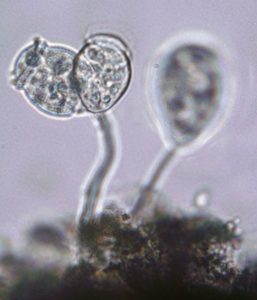 Microscopic investigations of water samples from the half-barrel pond in Christchurch House courtyard have revealed a menagerie of single-celled life. These tiny organisms (smaller than one tenth of a millimetre) are incredibly important as they form the basis of food webs. They also play a major role in maintaining water quality as they feed on bacteria, and stalked species such as Vorticella (image) are responsible for their removal in waste-water treatment plants. The half-barrel “pond” may be almost as small as its inhabitants but it promises to become a treasure of local ‘hidden’ biodiversity!
Microscopic investigations of water samples from the half-barrel pond in Christchurch House courtyard have revealed a menagerie of single-celled life. These tiny organisms (smaller than one tenth of a millimetre) are incredibly important as they form the basis of food webs. They also play a major role in maintaining water quality as they feed on bacteria, and stalked species such as Vorticella (image) are responsible for their removal in waste-water treatment plants. The half-barrel “pond” may be almost as small as its inhabitants but it promises to become a treasure of local ‘hidden’ biodiversity!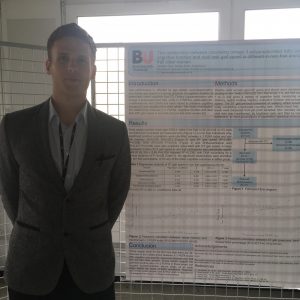 I was given the opportunity to present some preliminary results from an ongoing study I am conducting as part of my PhD, looking into the effects of a multi-nutrient omega-3 fatty acid supplement and exercise on mobility and cognitive function in ladies aged 60+. Analysis of the baseline data revealed relationships between levels of omega-3 fatty acids in the blood with cognitive and gait outcomes, however this effect differed between non-frail and pre-frail participants.
I was given the opportunity to present some preliminary results from an ongoing study I am conducting as part of my PhD, looking into the effects of a multi-nutrient omega-3 fatty acid supplement and exercise on mobility and cognitive function in ladies aged 60+. Analysis of the baseline data revealed relationships between levels of omega-3 fatty acids in the blood with cognitive and gait outcomes, however this effect differed between non-frail and pre-frail participants.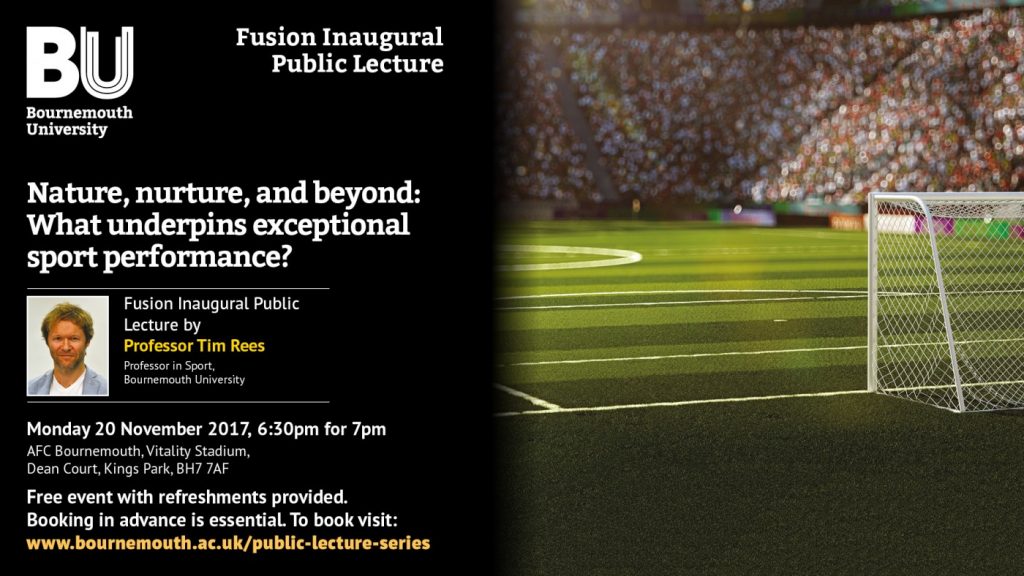

 NERC will commission its second round of Doctoral Training Partnership investment (DTP2) through a fully open competitive call, to be launched in January 2018.
NERC will commission its second round of Doctoral Training Partnership investment (DTP2) through a fully open competitive call, to be launched in January 2018. 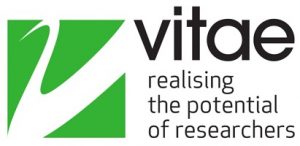 Focus-on: Getting started – ‘What every researcher needs to know’
Focus-on: Getting started – ‘What every researcher needs to know’

 There are 15 spaces available for academic staff whose funding application has been rejected and wish to re-submit to another funder, within the next 12 months.
There are 15 spaces available for academic staff whose funding application has been rejected and wish to re-submit to another funder, within the next 12 months.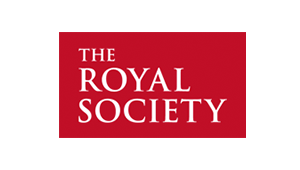


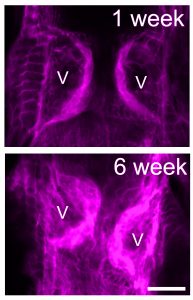 Research funded by the British Heart Foundation looking at tissue fibrosis (scarring), will soon be published in Experimental Gerontology, one the world’s leading journal on ageing. Fibrosis occurs naturally as part of our injury response process but also develops in ageing and chronic disease. Treatments are scant despite fibrosis leading to organ failure and increased risk of death.
Research funded by the British Heart Foundation looking at tissue fibrosis (scarring), will soon be published in Experimental Gerontology, one the world’s leading journal on ageing. Fibrosis occurs naturally as part of our injury response process but also develops in ageing and chronic disease. Treatments are scant despite fibrosis leading to organ failure and increased risk of death.
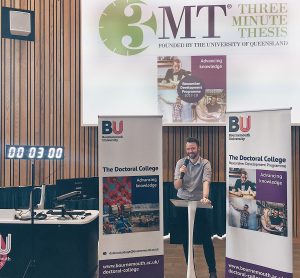
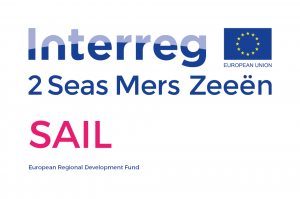
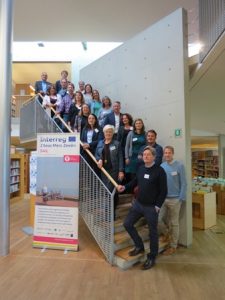
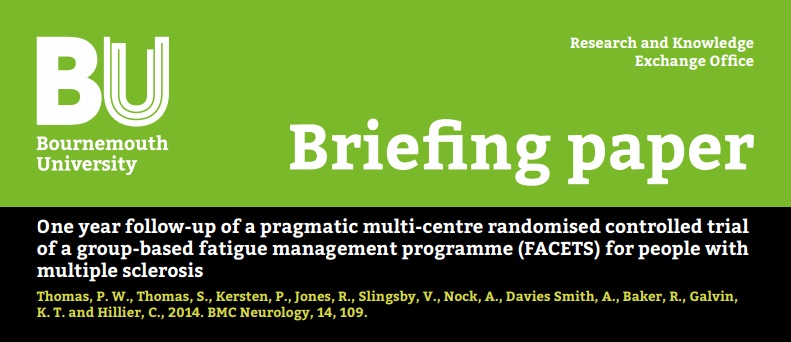
 Our
Our 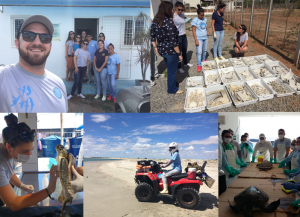











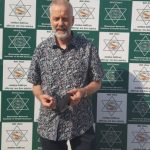 Fifteen years at BU
Fifteen years at BU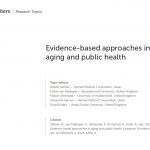 New eBook published in April
New eBook published in April MSCA Postdoctoral Fellowships 2024
MSCA Postdoctoral Fellowships 2024 Horizon Europe News – December 2023
Horizon Europe News – December 2023